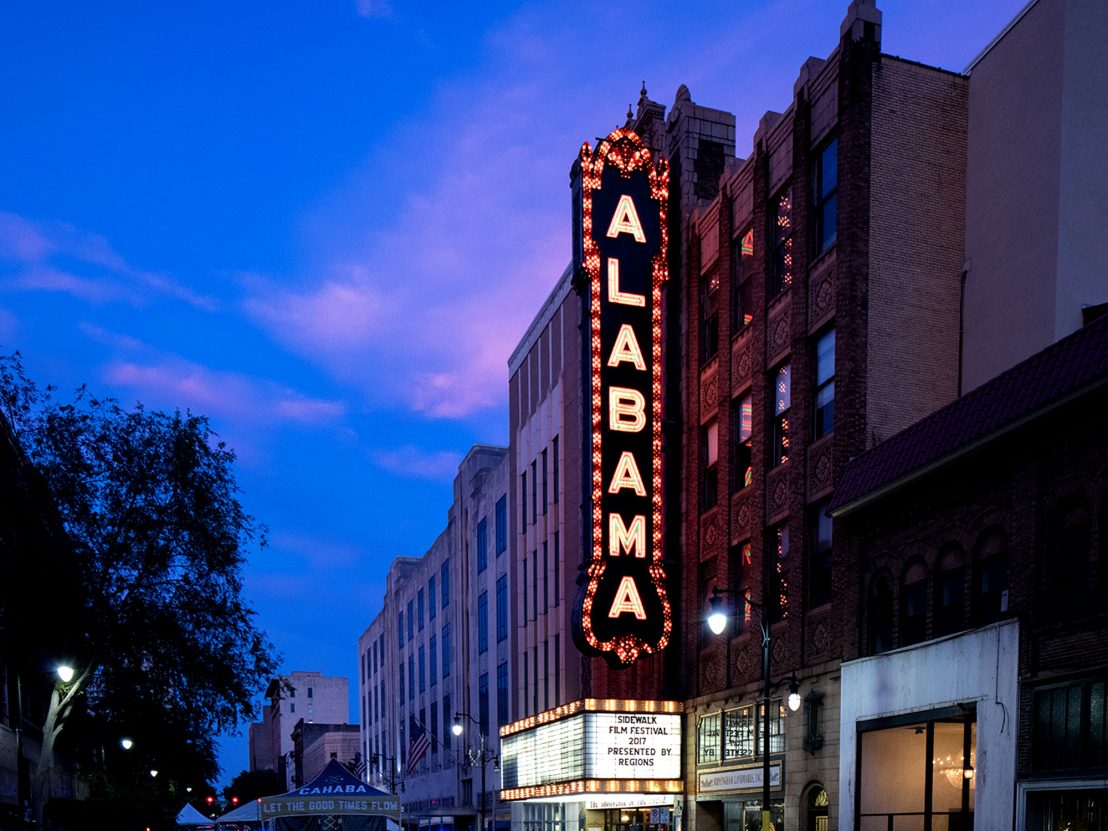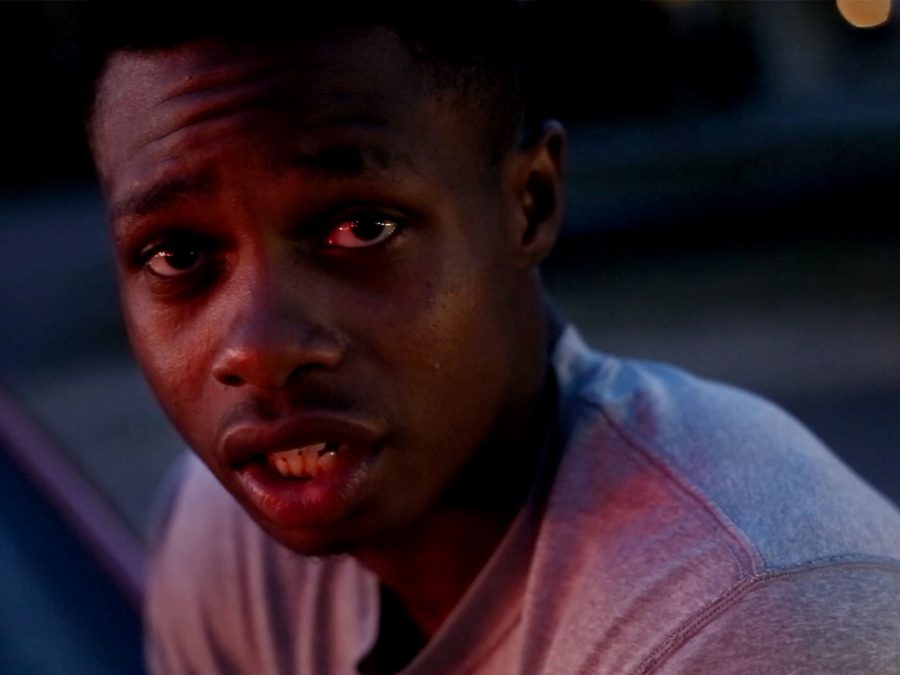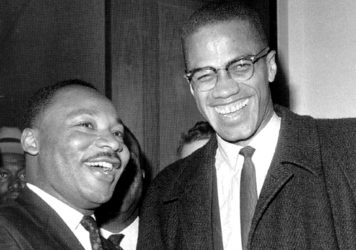
As film workers across America’s Deep South face an uncertain future, events like Sidewalk continue to show the way forward.
It’s unusual for two state legislative sessions in the United States to have an effect on the national and international film industry, but a pair of bills passed in two Southern states in May look set to have a profound and lasting impact on cinema in America and beyond.
In Georgia, Governor Brian Kemp signed a bill that will make abortion illegal across the state after six weeks of pregnancy. The backlash to the bill – which many legal scholars and politicians view as a direct challenge to the Roe versus Wade ruling in the Supreme Court which legalized abortion across the US – was swift, and filmmakers such as Reed Morano and Kristen Wiig proposed boycotts that targeted Georgia’s massively lucrative film industry, which government agencies estimate accounts for $9.5 billion in “economic impact” within the state.
Because of the incredibly generous tax cuts provided by local government for production companies, Georgia has become a hub for the international film production, becoming the de facto filming destination for Marvel, Disney and Netflix. Cutting off one of Georgia’s most prosperous sources of economic income could prove to be effective, but Georgia’s film workers argue that the local industry – from production assistants to animators to on-set caterers – would feel the financial repercussions of a boycott long before the state itself would. Georgia’s neighboring state, Alabama, stands to be hurt by a boycott as well.
A few weeks after the Georgia ban, Alabama Governor Kay Ivey signed an even more restrictive abortion ban into law, one that effectively outlawed all abortions in the state with no exceptions for rape, incest, or the health of the pregnant woman. There have been no direct calls for a boycott of Alabama, but the Georgia boycott will almost certainly hurt Alabama film workers given the interconnectedness of the Southern film industry.
The past few years have seen Academy Award-nominated productions such as Jordan Peele’s Get Out and RaMell Ross’ Hale County This Morning, This Evening, but a stall of Georgia’s film industry – along with Alabama’s even more restrictive abortion bans – stands to destroy all of the recent progress the state’s creative community has made.

A test for the boycott and the sturdiness of the South’s film industry comes in late August, with Alabama’s annual Sidewalk Film Festival. The long-running event, which takes place in Birmingham, showcases new indie films, restored classics and locally made short films in the city’s vaudeville-era theaters and local music venues. This year’s 21st edition would already have been critical under normal circumstances: the festival’s organizers will be opening up a permanent residence downtown, making it one of the few theaters in Alabama dedicated to showing independent films.
When I sat down with Sidewalk’s lead programmer, Rachel Morgan, and executive director, Chloe Cook, the opening night of the festival was still a month away. The screening schedule – which includes Jennifer Kent’s The Nightingale, Lynn Shelton’s Birmingham-set dramedy Sword of Trust and the extended director’s cut of Ari Aster’s Midsommar – were being finalized, and the organization was close to securing the funding needed to finish the long-gestating theater within the coming months.
The fallout from Alabama and Georgia abortion bans have brought a fresh set of challenges to an already complicated event: can a festival in the epicenter of one of America’s most complicated social, legal and medical issues still attract filmmakers and financiers? “We certainly had to have conservations that I’ve never had before with distributors and filmmakers,” says Morgan. She notes that ultimately no distributors pulled their films from the final Sidewalk line-up, attributing this to the relationships she has cultivated with indie distributors such as A24, Magnolia Pictures and IFC Films.
But Morgan can’t overlook the possibility that there are smaller filmmakers who may not have submitted their work for consideration because of Alabama’s political situation, explaining that the organizers have no way of knowing “how many people may have not submitted to the festival. Our submissions were not down, but you never know. Did somebody not submit because of [the abortion ban]? Did a filmmaker not answer me because of it? I don’t know the answer to that.”
However, Cook and Morgan can say with certainty that the festival’s source of funding was affected by the bills and corresponding boycott. Sidewalk is a relatively small non-profit organization which actively raises money to fund its various initiatives, including the film festival. Much of the funding is raised from local and regional cultural and film organizations that see contributing to Sidewalk as an investment in the South’s film industry. The calls for boycott put some of those funds into jeopardy, but not in the ways one would expect.
Cook, who is responsible for Sidewalk’s funding and planning, says that some sponsors who service the Alabama and Georgia film industry had to back out of their funding agreements because of the looming boycott and anticipated losses as a result of it. As far as the funding for the cinema goes, Cook says that because most of the capital for the project has been raised locally and construction is nearly completed, the team is not concerned about financing the last portion of the nearly $5 million project.
While many initial fundraising and programming issues have calmed down now that the bills are no longer topics of conversation, Cook predicts that the call to boycott “will rear its ugly head again” once the laws are enacted, presenting a new set of challenges. In conversations Morgan has had with filmmakers and distributors over the past year about showing their films at Sidewalk, she explains that she has spoken a lot about what it’s like on the ground in Alabama, recognizing that many folks in the film industry have never visited the state. Wondering if the abortion bills reflect the views of their prospective audience in Alabama, they question whether films that challenge the conservative politics of the state will resonate with the public.
Morgan has told the filmmakers and distributors what it’s like living in Alabama – especially in the progressive and overwhelmingly pro-choice city of Birmingham – and listens to their concerns about the provocative content in their films. Her answer to them is one that posits film as a conduit for community change: the challenging content in these films is essential, she says, and Alabama audiences, “need diverse content, we need challenging content. It’s really important and maybe more important in the state than anywhere else.”
The long-term effects of the abortion ban and proposed boycott are unclear at the present moment. The Alabama and Georgia bills will go into effect in 2020, but legal watchdog groups and individuals have already filed legal action against the states in order to deem the bills unconstitutional before they are scheduled to be enforced. Until then, the entire Southern film community is in limbo, hoping that those outside of the industry recognize the potential for activism and possibility through filmmaking. A boycott can be a powerful tool in a capitalist power struggle between an institution and the public, but the deeply personal, religious and cultural underpinnings of the abortion ban make it seem unlikely that economic loss would be enough to affect change.
What is needed now more than ever is support for Southern communities, filmmakers, and workers, all of whom are critical in the South’s progressive evolution, but with a boycott, there’s a chance that these creators will not have the same chance to share their stories, especially if local organizations like Sidewalk and other Southern film festivals do not have the network of support they need to function.
Would a boycott and its potential widespread impact stop Southern workers, women and the queer community from giving a voice to their struggles at a time when their voices are needed the most? Only time will tell. But through it all, Sidewalk will continue to show its films and supporting Southern filmmakers as it always has.
For more info on this year’s Sidewalk Film Festival visit sidewalkfest.com
Published 1 Aug 2019

The New Man offers a refreshingly honest look at what it means to bring life into the world.

By Matt Turner
Filmmaker RaMell Ross weaves a transcendental tapestry of black lives in present-day Alabama.

BlacKkKlansman is the latest ‘Spike Lee Joint’ to feature a powerful, thought-provoking epilogue.